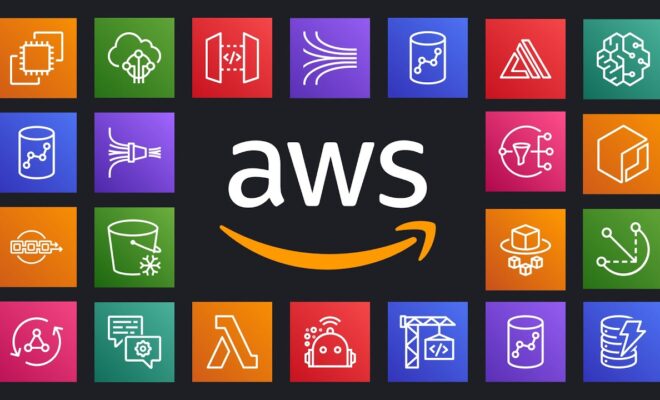
There are many reasons you might want a business degree and why they’re so popular worldwide, from increasing job prospects to starting your own business to, of course, increasing your earning potential. These days, there are myriad opportunities to earn this coveted degree, and it can be tricky to figure out which option is right for you. Understanding the history of these courses can help you understand how they’ve evolved, what the landscape looks like now, and what the future might be.
Early beginnings
While the college as an educational institution has been around for centuries, the kinds of courses they offer have changed over time. Throughout most of human history, most regular businesses operated on small, interpersonal scales. However, that changed with the advent of the industrial revolution in the 1800s and the division of labor. Craftsmen and their trades became increasingly automated to produce goods at scales unthinkable generations prior.
The average worker could now find employment for increasingly specialized skills. As the size of workforces increased, so too did the demand for people who could manage large-scale industrial businesses in an ever-changing economic landscape. People skills, technical knowledge, and, in some cases, legal practice were necessary disciplines that overlapped in industrial-scale business, and they all required mastery. And while some colleges already offered courses that touched on more modern business practices, like accounting, the idea of elevating business education to a degree like law or medicine was unprecedented.
Midlife
Nonetheless, the demand for educated business management professionals grew steadily, as did colleges’ course offerings. The first “prototype” MBAs were based on the core disciplines of accounting, business strategy, economics, finance, and manufacturing and production. The Wharton School in Pennsylvania opened its doors to business students in 1881, and the Haas School of Business in California followed suit a few years after. However, these schools were limited in scope initially, as they didn’t offer graduate degrees.
Harvard University in Massachusetts developed its own program in 1908 specifically designed as an advanced degree. MIT, also in Massachusetts, also offered a management and leadership program with the goal of training corporate executives. While both of these programs did offer advanced degrees for business management, they were still precursors to the modern MBA. It wasn’t until 1940 that the first modern-style MBA program was offered at the University of Chicago Booth School of Business. Chicago’s degree was the first Executive MBA, also offered on the London and Singapore campuses, and paved the way for the majority of business schools in the US today.
Entering modernity
By 1955, MBA programs flourished in business schools and universities around the United States. The program had become reputable, and more employers were looking to hire people who had earned this degree. In the same year, the University of Karachi in Pakistan offered its own program modeled after the U.S. style — the first of its kind in Asia. INSEAD was the first business school in Europe to do the same as of 1957, and their degree is now considered one of the most prestigious around the world.
Philosophically, MBAs have fluctuated in the scope of their focus over time. The Ford and Carnegie Foundations concluded that MBA programs too narrowly resembled vocational programs in their 1959 studies. In response, many programs shifted their programs to be more theoretical in nature. However, in the 1990s, other studies determined that the programs were too abstract, not teaching the necessary skills to secure advantages in the corporate world. Now, every MBA falls somewhere on the gradient between theoretical and practical knowledge.
Contemporary
Despite critiques over the years, the reality is that tens of thousands of students pursue their MBA degrees annually. Many schools offer MBA programs, with some of the aforementioned schools such as Harvard, Haas, and INSEAD standing the test of time and maintaining their prestige. While the MBA has now cemented its place as the business degree of choice, it has still undergone changes in recent decades. One of the biggest changes to MBA programs came not in the form of academics, but in time management.
Traditionally, an MBA is a two-year, full-time, in-person program. However, an increasing number of people would like to receive an MBA but can’t afford the time, or simply don’t want to drop everything they’re doing to study for two years straight. So many programs have developed part-time curriculums to accommodate modern learning patterns. Alternatively, there are also accelerated programs that range from 14 — 18 months instead, or programs that accommodate working professionals. Many universities’ program offerings have gone fully digital to provide students increased flexibility and convenience.
The digital age
One critique of now-traditional MBAs is that they need an “update” for the digital age. Traditional programs were developed during a time when all assets were physical in nature. And while many of the management skills still translate, some of the economics of older asset classes may be outdated. The biggest digital businesses — think Google, Microsoft, and Meta — can generate revenue with relatively minimal expenses considering their scale. Theoretically, digital assets are infinitely replicable without erosion, and so the economics surrounding them differ fundamentally.
The economic landscape is being transformed by the mere presence of digital assets, and some MBA programs are responding in kind. Online learning isn’t just an alternative method to getting a traditional degree. While it can be, some institutions are adapting, offering MBA programs that teach best practices regardless of asset class. The mba-careers page of Aston University, for example, details the myriad ways their forward-looking MBA will help boost your career. Such a degree will help you ride the wave of economics as emerging technologies like AI, cryptocurrency, and automation proliferate.
The future
The modern MBA has evolved considerably since its inception in the 1800s. As businesses and business types multiplied, the ability to grasp the intersection of complex social and economic factors became increasingly important. Now, in the digital age, industries are changing faster than ever before. Companies need managers at the helm to help them pilot across ever-changing landscapes. Getting an MBA is a surefire way to help orient your understanding and tune-in to the heartbeat of the living business world.









